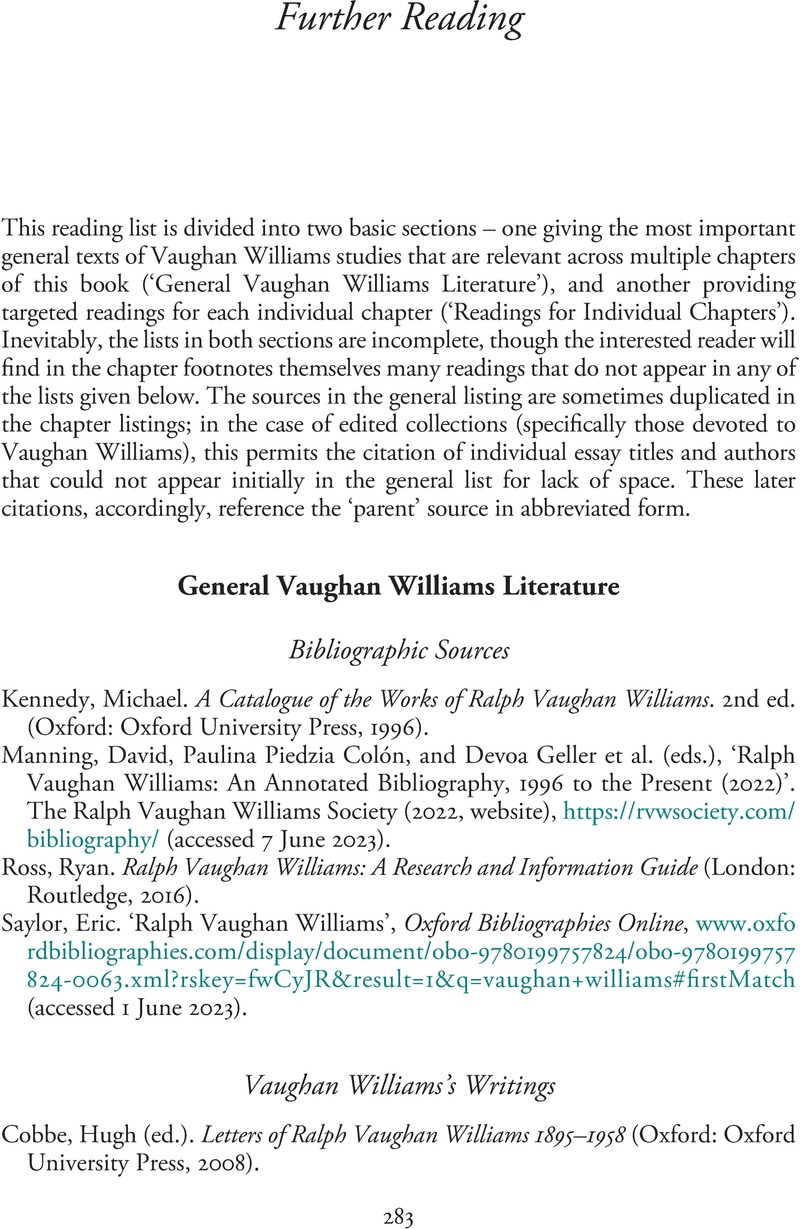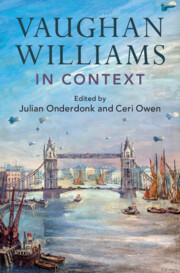Book contents
- Vaughan Williams in Context
- Composers in Context
- Vaughan Williams in Context
- Copyright page
- Dedication
- Contents
- Illustrations
- Graphs and Tables
- Musical Examples
- Notes on Contributors
- Acknowledgements
- Editorial Note
- Bibliographic Abbreviations
- Introduction
- Part I Biography, People, Places
- Part II Inspiration and Expression
- Part III Culture and Society
- Part IV Arts
- Part V Institutions
- Part VI Reception
- Further Reading
- Index of Works
- General Index
- References
Further Reading
Published online by Cambridge University Press: 28 March 2024
- Vaughan Williams in Context
- Composers in Context
- Vaughan Williams in Context
- Copyright page
- Dedication
- Contents
- Illustrations
- Graphs and Tables
- Musical Examples
- Notes on Contributors
- Acknowledgements
- Editorial Note
- Bibliographic Abbreviations
- Introduction
- Part I Biography, People, Places
- Part II Inspiration and Expression
- Part III Culture and Society
- Part IV Arts
- Part V Institutions
- Part VI Reception
- Further Reading
- Index of Works
- General Index
- References
Summary

- Type
- Chapter
- Information
- Vaughan Williams in Context , pp. 283 - 299Publisher: Cambridge University PressPrint publication year: 2024



